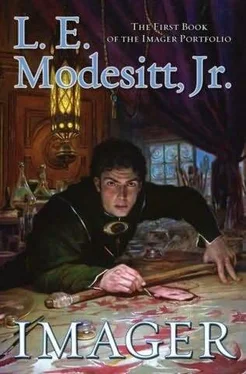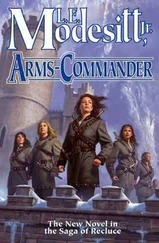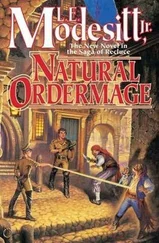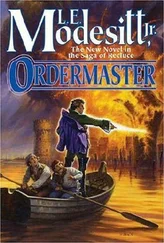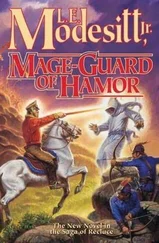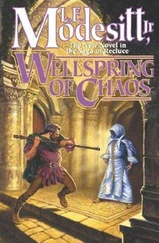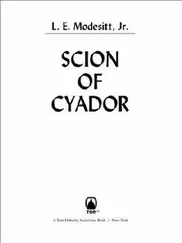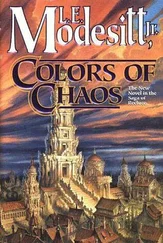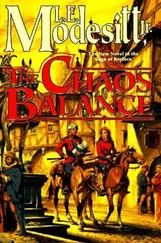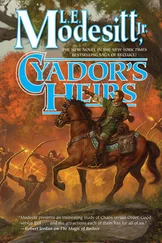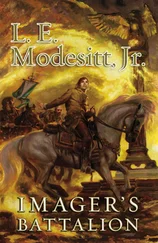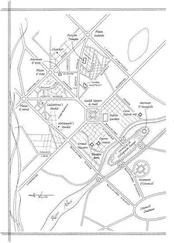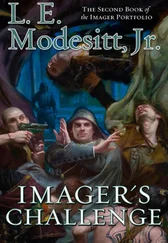L. Modesitt - Imager
Здесь есть возможность читать онлайн «L. Modesitt - Imager» весь текст электронной книги совершенно бесплатно (целиком полную версию без сокращений). В некоторых случаях можно слушать аудио, скачать через торрент в формате fb2 и присутствует краткое содержание. Жанр: Фэнтези, на английском языке. Описание произведения, (предисловие) а так же отзывы посетителей доступны на портале библиотеки ЛибКат.
- Название:Imager
- Автор:
- Жанр:
- Год:неизвестен
- ISBN:нет данных
- Рейтинг книги:4 / 5. Голосов: 1
-
Избранное:Добавить в избранное
- Отзывы:
-
Ваша оценка:
- 80
- 1
- 2
- 3
- 4
- 5
Imager: краткое содержание, описание и аннотация
Предлагаем к чтению аннотацию, описание, краткое содержание или предисловие (зависит от того, что написал сам автор книги «Imager»). Если вы не нашли необходимую информацию о книге — напишите в комментариях, мы постараемся отыскать её.
Imager — читать онлайн бесплатно полную книгу (весь текст) целиком
Ниже представлен текст книги, разбитый по страницам. Система сохранения места последней прочитанной страницы, позволяет с удобством читать онлайн бесплатно книгу «Imager», без необходимости каждый раз заново искать на чём Вы остановились. Поставьте закладку, и сможете в любой момент перейти на страницу, на которой закончили чтение.
Интервал:
Закладка:
“You’re still young enough that such intensity can be taken for interest. As you get older, you will have to learn observation with circumspection, but by then, you should be able to pick up on what you see and sense almost without thinking about it.” He laughed. “Among the High Holders, observation is played as a game, if one with very high stakes. The one who can learn the most while revealing the least is usually the winner.”
In that sense, I’d just lost . . . but I’d learned in doing so. “If you would turn your head to the left, just a touch, sir?”
I painted for a solid glass, a little tentatively at first, because I hadn’t been working with the brushes all that much, but I could feel the touch come back before long. I managed to get most of the area around his forehead and eyes, as well as finish the nose, and get the shape of the jaw set with the underlying base.
As the first of the nine bells rang, Master Poincaryt rose. “I hope you will pardon me, Rhennthyl, but I do have a meeting with High Councilor Suyrien and Councilor Rholyn.”
“Yes, sir. I trust it will go well.”
“One never has a meeting without knowing exactly how it will go and how to assure that it does.” He smiled warmly. “Otherwise, what is the point?”
After he left, I thought about his parting words. He’d as much as said that he would be controlling the meeting between Rholyn, the councilor who represented the Collegium on the Council, and High Councilor Suyrien, the High Holder who chaired the executive committee of the Council, and who, in effect, spoke for the Council and all of Solidar. That also suggested that such a meeting was necessary, and that, at the least, there was not total agreement between Suyrien and the Collegium. I had no doubts there would be agreement when the meeting ended.
I spent almost another full glass working on the portrait, because I felt I needed to do so, but as I cleaned up, I realized another aspect of the Collegium. Master Poincaryt had come from the covert branch now headed by Master Dichartyn, and that suggested to me that Master Dichartyn might well be being prepared to become Master Poincaryt’s successor.
The Collegium was almost completely deserted by noon, and I ate with Reynol, who complained about having to deal with “great complexities” in the Collegium accounts, making things balance so that everything appeared in its proper place when the accounts were presented to the Council.
“To the Council?” I took a mouthful of saoras, thin strips of goose fried in spice oil, then covered with cheese and baked in a puff pastry.
“Absolutely. We provide services to the Council, for which we are paid. The armory has contracts with the Navy, that sort of thing. Even the . . . well . . . let us just say that almost every part of the Collegium provides goods or services to someone, and we receive an annual payment from the Council for resolution.”
“Does that mean resolution of the imager problem, by training them, and keeping them from being a problem, so to speak?”
“It’s not spelled out anywhere, and it dates back centuries. That’s all I know. Some things account clerks don’t ask about.” Reynol did smile.
I sipped the wine, a slightly bitter white plonk I couldn’t identify. “Why do you think other lands don’t have something like the Collegium?”
“Why would they want them? Half of them don’t want imagers because their religion or faith or what have you says we’re evil and unnatural. The others either tolerate them with restrictions or quietly force them out or kill them because they don’t fit.”
I had to think about that. “You mean because absolute rule, like in Caenen, can be turned upside down with imagers who can kill tyrants without ever being detected?”
“Right. But even outside influence worries those in power. In Jariola, there are really only forty-five members of the oligarchy. That’s hereditary. What if an imager went around killing, over time, those members with a given view? That could change things, and they don’t want change. In Ferrum, they believe in using machines and foreign contract workers to keep wages and costs low. That reduces the power of the guilds-they really don’t have them the way we do-and increases the power of the factors. They don’t even have anything like High Holders, only the wealthiest of merchants. A Collegium in Ferrum would certainly reduce the power of the merchanters.”
“So, for different reasons, neither Ferrum nor Jariola cares for imagers. What about Tiempre?”
“They’re crazy. They have this idea that any talent that only a few people have is the mark of Bius, the black demon, because Puryon, their oh-so-just god, bestows the potential for every true believer to have the same abilities as any other, if in differing levels, if they only believe. So all imagers are demons.”
“How can they believe that? People are different.”
Reynol just laughed. I had to as well.
After lunch, I found a shaded bench on the eastern side of Imagisle on the north end where there was a slight breeze off the water and sat down to try to think.
What had I discovered about those trying to kill me, and how had I discovered what I had? In the simplest sense, I had observed and talked to people. The problem now was that I had few enough people left with whom I could talk that I had not already contacted. But it could be that I’d been looking at the problem in the wrong way. A number of junior imagers had been killed over the past half year, and none of them had angered High Holder Ryel or taudischef Artazt. Some had been killed even before I’d entered the Collegium, and there were killings still happening, if intermittently. Why? Just because someone didn’t like imagers?
For a time, I just sat there, looking at the river, but I didn’t come up with any sort of answer. Yet . . . there was something. I just couldn’t see what it was.
Because I had a very strong feeling that trying to run down Elphens or other portraiturists wasn’t going to tell me any more, I finally returned to my quarters and read, mostly from On Art and Society. I didn’t know that I agreed with much of what I read. Juniae D’Shendael’s commentary did spark speculation, particularly her assertion that the reason there were virtually no women artists was because, historically, no one wanted to invest in training a woman when she had a fifty percent chance of dying in childbirth, and being surrounded by males, she would likely have a hundred percent chance of becoming pregnant. After having a child, she’d be able to devote less time to art and would require more food, especially if nursing.
I’d have to caution Khethila about not quoting too liberally from that volume.
At half past four, I was in a hack headed for Nordroad and Hagahl Lane. I had slipped a set of poison testing strips inside my waistcoat, not that I expected to be poisoned, but for practice. A very light drizzle had begun to fall, and I wished that I had an umbrella, not for me, but for Seliora.
I arrived almost a quarter glass early, but, seemingly as always, Bhenyt opened the door.
“Master Rhennthyl, please come in.”
“Are you the permanent doorman?” I asked jokingly.
“I like to see who’s coming, and, besides, Mother says it’s a way to meet people.” He smiled. “Aunt Seliora gives me things, too.”
Bhenyt carefully slid the lock and the bolt in place, and then we walked up the steps, where he took his leave.
I waited for a time in the main-level entry hall, taking in the paintings set at intervals, as well as the hangings. I had the feeling about one of them, an elaborate geometric design of silver and dark gray on a rich green. It was far newer than the others. I didn’t recognize any of the paintings, all of them landscapes or city scenes, although I thought one of the scenes looked like it might have been painted by Elphens or his former master-except it was signed by someone called Arhenyt, who from the style might have been Rhenius’s father.
Читать дальшеИнтервал:
Закладка:
Похожие книги на «Imager»
Представляем Вашему вниманию похожие книги на «Imager» списком для выбора. Мы отобрали схожую по названию и смыслу литературу в надежде предоставить читателям больше вариантов отыскать новые, интересные, ещё непрочитанные произведения.
Обсуждение, отзывы о книге «Imager» и просто собственные мнения читателей. Оставьте ваши комментарии, напишите, что Вы думаете о произведении, его смысле или главных героях. Укажите что конкретно понравилось, а что нет, и почему Вы так считаете.
